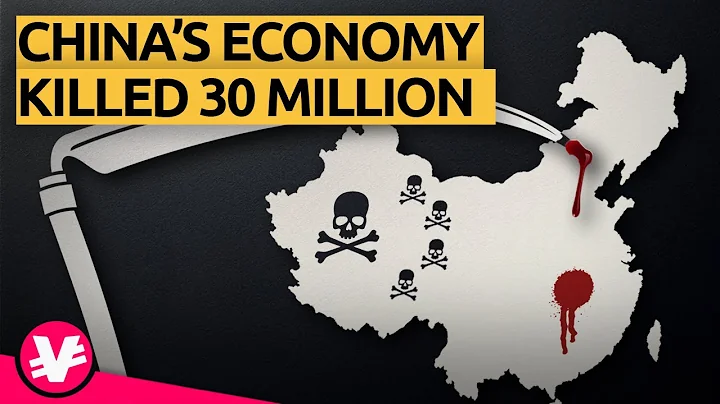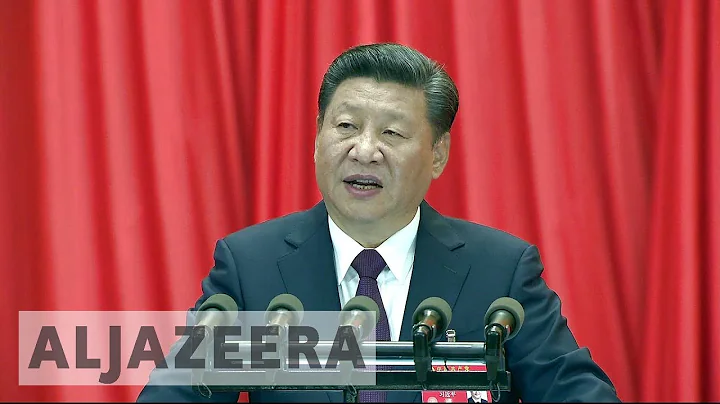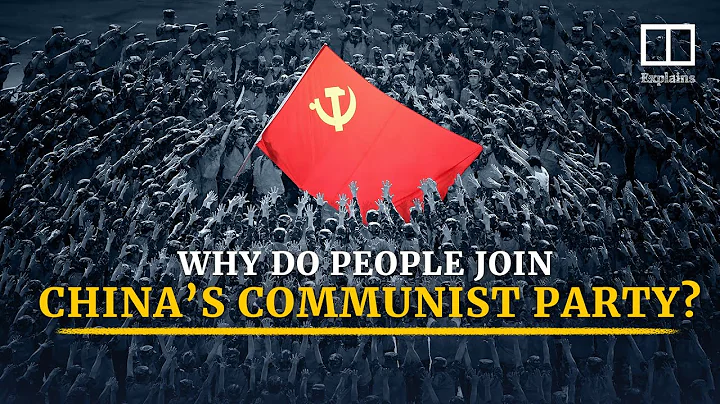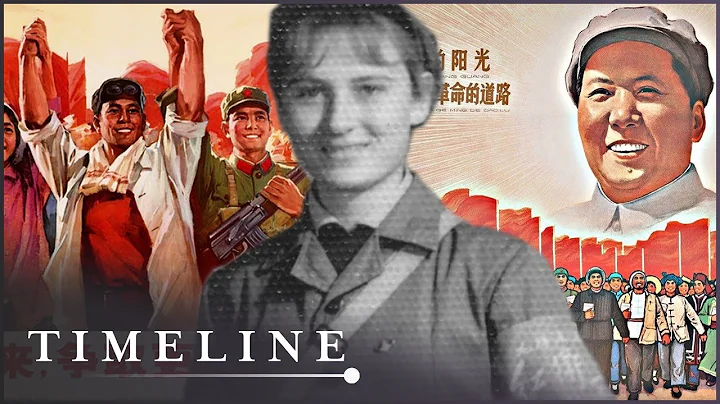In 1953, after the first census, Peking University President Ma Yinchu looked at the data and frowned. He believed that according to the population growth rate at that time, Chinese people would not be able to afford food in 50 years. The problem was so serious that he proposed "family planning" to the country.
In that era of "more people, more power", the idea of family planning was unacceptable to people, so at the National People's Congress meeting, Ma Yinchu boldly advised Chairman Mao, saying that there was no electricity in the countryside, so those farmers kept having children. After Chairman Mao heard this, he was speechless with just one sentence: "You have electricity at home, but you gave birth to 7 children!"
At first, the family planning proposed by Ma Yinchu was difficult to achieve in China, but in the end But it was still adopted. As a population expert, Ma Yinchu himself gave birth to 7 children. Why did he put forward the idea of limiting population growth? How did he allow this plan to be implemented smoothly?

Demographer
Speaking of "family planning", we have to first understand Ma Yinchu.
Ma Yinchu was born in 1882. At the end of the Qing Dynasty and the beginning of the Republic of China, Ma Yinchu's parents spent a lot of energy on him. Fortunately, Ma Yinchu himself worked hard enough, so he was knowledgeable at a young age, far ahead of all the children around him.
In 1901, Ma Yinchu went to Tianjin Beiyang University to study. Later, because of his excellent grades, he was recommended to study at Yale University in the United States. In the United States, Ma Yinchu received double doctorates in economics and philosophy. With such an honor, Ma Yinchu returned to China to become a A university teacher can live a peaceful life.
But Ma Yinchu did not stop learning, but entered New York University to study business.
In 1915, Ma Yinchu returned to China after completing his studies. As a highly talented economics student who had returned from overseas, he received invitations from all parties as soon as he set foot on Chinese soil. Among them were people who were in business, politics, and even warlords.
The reason why these people invited Ma Yinchu was just to promise benefits and then take him under their command. Facing those high-ranking officials with generous salaries, Ma Yinchu did not show the slightest interest, but turned around and devoted himself to education.
For Ma Yinchu, no matter how good his personal performance is, it is not as direct as educating more capable people. After all, a person's ability is limited.

Ma Yinchu has indeed won praise from all walks of life with his knowledge. Perhaps his thoughts have been supported by more people, so that his remarks have become more and more bold. While teaching at
, he often criticized and commented on current affairs. Because of his special status and great influence, the National Government at that time attached great importance to him and invited Ma Yinchu to important positions in the National Government many times.
Faced with the National Government's invitation, Ma Yinchu sneered, believing that the National Government had a hollow reputation, and even publicly denounced and opposed the National Government.
was more famous at that time for his support for the "May 20" massacre. Ma Yinchu, as a prestigious scholar and educator, publicly stated his support for the students' strike, and also went to Nanjing to give a speech, exposing the stupidity of the Kuomintang's civil war and calling it The interests of the nation were betrayed.
These remarks of Ma Yinchu also angered the Nationalist Government, and even sent people to threaten Ma Yinchu, saying that if he continued to speak everywhere, someone would not mind killing him.
Ma Yinchu is a person who takes soft things rather than hard ones. Faced with threats, he directly wrote a suicide note, and then continued to give speeches regardless of his personal safety.
In the winter of 1947, when Ma Yinchu was giving a speech at school, someone secretly told him that there might be spies at the meeting and asked him to cancel or postpone the meeting.

Ma Yinchu laughed at that time. He walked directly to the stage, straightened his chest and said: "Am I afraid of the spies? I am standing here now. If you have the ability, you can shoot me. If I, Ma Yinchu, are afraid, I will not be afraid at all." I wouldn't have come to this place. I'm not afraid of you, but I believe you must be afraid of me!"
In this way, Ma Yinchu completed the speech in front of these agents. Not only did he have no fear on his face, he even showed up on the stage. He criticized the corruption within the Kuomintang, opposed Chiang Kai-shek 's dictatorship, and said that no matter how much money he was given, he would not serve in the National Government...
After his speech, the entire venue burst into thunderous applause, and Ma Yinchu also held his head high. walked off the stage.
Abandoning the dark and turning to the bright
Speaking of which, Ma Yinchu and Chiang Kai-shek had a connection. He had been Chiang Kai-shek's teacher. Based on this relationship between the two, Chiang Kai-shek invited Ma Yinchu to important positions in the National Government several times.

Chiang Kai-shek
During the Anti-Japanese War, Chiang Kai-shek, as Chairman of the Generalissimo, invited Ma Yinchu to have dinner with his subordinates. Ma Yinchu directly refused to accept the visitor, saying, "Chiang Kai-shek is my student. If he doesn't come to see me, forget it, and let me Go to see him, and all those sages' books will be read in vain." After being rejected, Chiang Kai-shek sent someone to visit him for the second time, and offered Ma Yinchu the opportunity to serve as his minister of finance or president of the central bank. Both of these were fat jobs, but Ma Yinchu refused without thinking. He laughed and said: "You want to use money to shut my mouth, right? It's crazy. If I don't make a fortune for the country, you will have another job." Please be wise!"
After being rejected twice, Chiang Kai-shek gave up lobbying Ma Yinchu, thinking that a scholar would not be able to produce anything.
When Ma Yin first saw that Chiang Kai-shek had nothing to do with him, his criticism of the National Government became more and more explicit. Later, the National Government found an excuse to imprison him for two full years. This move of the National Government also directly Pushed Ma Yinchu to the Communist Party.
People within the party all admired Ma Yinchu's talent, especially Chairman Mao, who admired Ma Yinchu's "outspoken" courage and directly appointed him as the president of Peking University.

In 1953, after China's first census, Ma Yinchu saw the problem. In order to prove his conjecture, he spent three years investigating and researching population growth.
At the beginning of the founding of New China, although the current situation has temporarily stabilized, it is still difficult for the people to live without worries about food and clothing, especially in rural areas. Every household does not have enough to eat, but even in this situation, the people I still keep having babies.
Due to the medical environment and living environment, many children cannot survive after birth. Even if they survive, their education cannot be guaranteed. National development cannot rely on individual people. This is a concept that Ma Yinchu has always believed in.
If China's population continues to increase every year at the current rate, within fifty years, no one in China will be able to afford food, no one can afford to go to school, and there will be no development in this country.
Thinking of this, Ma Yinchu was worried, so he proposed the idea of "family planning" at the Political Consultative Conference. He not only advocated family planning, but also advocated late marriage, late childbearing, fewer and eugenics, encouraged people across the country to carry out planned birth control, and advocated fines for excess children. .
He believes that it is normal and appropriate for each family to have two children.

Ma Yinchu's remarks are contrary to the concept of "carrying on the family line" that has been passed down in China for thousands of years. Therefore, as soon as this statement was made, it was immediately condemned by all walks of life, especially those who admire "the power of strength in numbers". He wrote Criticizing Ma Yinchu, calling him a typical "double standard person" who asks others to do things he cannot do himself.
This statement directly refers to Ma Yinchu's life. It turns out that Ma Yinchu himself is a typical "multiple children" family.
Ma Yinchu's marriage was arranged by his parents. When he married his wife, he had no concept of love. He only married his wife to carry on the family line. Fortunately, the wife his parents chose for him was very virtuous and treated people well. , so the couple get along very harmoniously.
Ma Yinchu's wife gave birth to a total of three daughters and one son for him. On the day his son was born, everyone in the Ma family was extremely happy. Ma Yinchu himself also felt that he had finally accomplished a major event in his life and finally had a successor.
But the good times did not last long. Ma Yinchu's son died of illness soon after. His wife was too sad and suffered from the disease during confinement. The doctor said she could never have children again.
This was a bolt from the blue for the Ma family, but fortunately, Ma Yinchu's wife had a "big picture". She didn't want the Ma family's incense to be cut off in her own hands, so she persuaded her husband to take a concubine.
At first Ma Yinchu disagreed, partly because he had received advanced education on monogamy abroad, and partly because the child had just arrived and he had no intention of thinking about anything else.

Ma Yinchu
Although Ma Yinchu himself disagreed, the rest of the Ma family did not give up, especially Ma Yinchu's wife, who always looked for suitable girls for her husband from time to time.
Until a girl named Wang Zhongzhen appeared in front of her. This Wang Zhongzhen was a classmate of Ma Yinchu's eldest daughter. She often came to play at home before, and the couple was also familiar with this girl.
Wang Zhongzhen's family conditions were average and she only graduated from elementary school. Although her education level was not high, the girl was pretty, well-educated, and very obedient, so Ma Yinchu's wife came up with the idea of letting her husband take her as his concubine.
Wang Zhongzhen was 13 years old at the time, a full 22 years younger than Ma Yinchu. Perhaps out of admiration, she was happy to be Ma Yinchu's concubine. His idea shocked Ma Yinchu, although he felt it was inappropriate, but From that time on, I would pay attention to this girl from time to time.
Monogamy had already been promoted during the Republic of China, especially people with status and culture like Ma Yinchu who respected this system. But when Wang Zhongzhen appeared, his mind completely changed. After all, who would I don't like young and pretty girls.
To the outside world, Ma Yinchu married Wang Zhongzhen because of the pressure of his family to "carry on the family line." But in fact, Ma Yinchu had a good impression of Wang Zhongzhen and thought she was young, beautiful, and well-informed.

After Wang Zhongzhen entered the Ma family, she took the responsibility of carrying on the family line on her own shoulders. In the end, she lived up to expectations and gave birth to two sons and two daughters for Ma Yinchu.
Looking back on Ma Yinchu's practice of taking concubines, it is somewhat similar to the famous painter Zhang Daqian.
Ma Yinchu's relationship experience has also become an obstacle to "family planning". Many people who oppose family planning use this to refute him, saying that his words and deeds are inconsistent.
Because of these many obstacles, family planning was not only unsuccessful, but also caused the good reputation Ma Yinchu had built up over the years to plummet.
When everyone was criticizing Ma Yinchu, his friend Hu Shi jumped out to help him. Hu Shi said that everyone had misunderstood Ma Yinchu. He did not take concubines to carry on the family line, but because Ma Yinchu was strong and healthy. , the wife was in poor health, and the family was not enough for one woman, so she took a concubine. The so-called inheritance of the family line was just a pretense.
Hu Shi's words were quite funny and joking, which temporarily diverted everyone's attention from the "population theory". However, this situation did not last long, and Ma Yinchu's straightforward character aroused public anger again.
After all, Ma Yinchu's "population theory" has shaken the foundation of every family, so there are very few people in the country who support him.

"Family Planning" was implemented
Although the government did not adopt Ma Yinchu's suggestions, he did not give up on population research.
Ma Yinchu has always maintained an outspoken style and shared the data obtained from his investigation and analysis with the public. His behavior was not recognized by the public, but was criticized everywhere. Even so, he still believed that the country should reduce its population.
Even Guo Moruo once bluntly said that Ma Yinchu was a "copper pea" that could not be cooked, steamed or blown!
Ma Yinchu's persistence was effective. After the reform and opening up, the new generation of leaders put the "family planning" proposal on the table again based on the current social development.
According to the results of discussions between all parties, they believed that reducing the population would indeed be more conducive to the development of the country and would also help the people have more energy to pursue a quality life, so the "family planning" was implemented after 30 years.
Practice brings true knowledge. After the implementation of the family planning policy, every family across the country has been affected to a greater or lesser extent. Although most people still cannot understand this policy, facts have proved that since then, people’s Living standards have improved significantly.

The national policy of family planning has fundamentally curbed the skyrocketing population and reduced the burden on each family, which is equivalent to reducing the burden on the country and allowing the country to free up more time and resources to develop the economy. This The clever strategy saved the fate of many Chinese people, and also saved the fate of China to a certain extent.
Family planning has changed the population structure, and has also implemented the policy of "optimizing students and reducing births". With fewer children, parents' attention has become more concentrated, which is also a great help to the reform of education.
Although family planning is not perfect, we have to admit that the benefits it brings us outweigh the disadvantages. To some extent, we all have to be grateful for this strategy.

Many people will also discuss Ma Yinchu's proposal now, believing that he has indirectly affected the lives of contemporary people, leading to the serious aging of China's population. The idea of
is somewhat biased. The times are always advancing by constantly discovering and solving problems. Different eras will encounter different problems. We cannot use the policies of decades ago to deal with the problems we encounter today. Difficult, but should analyze the specific problems of and in detail.
The sages of the past were able to find good solutions to current problems, and we can do the same now.





















